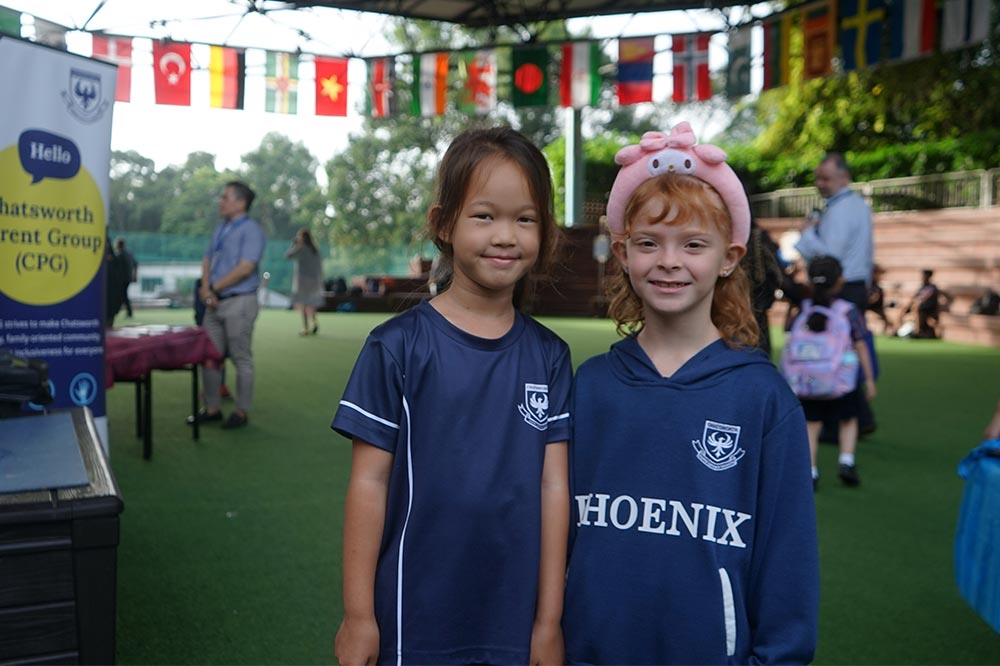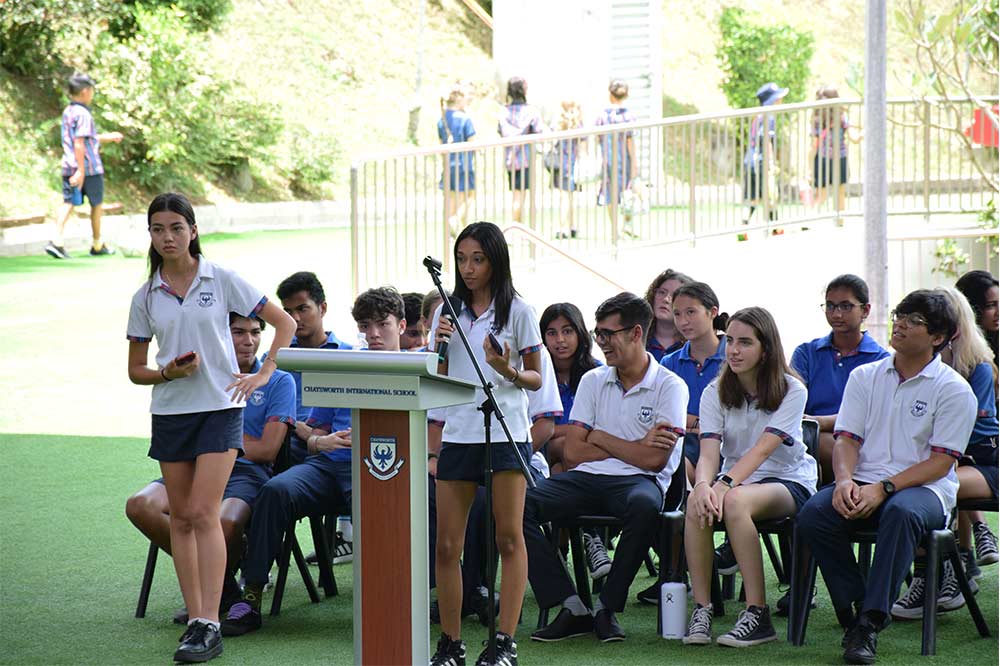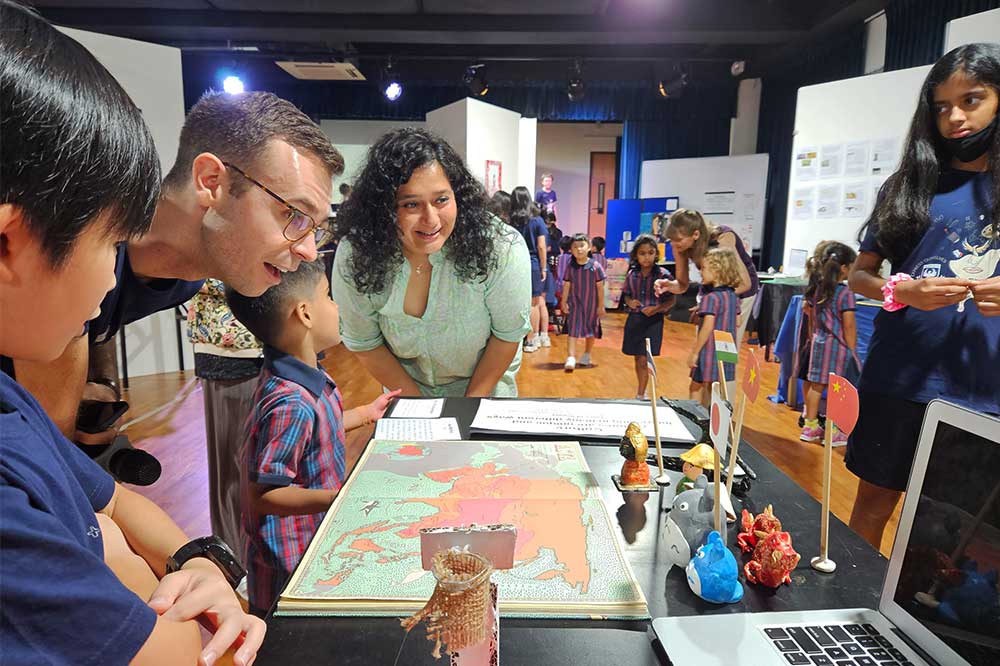Your Guide to International Secondary Schools in Singapore
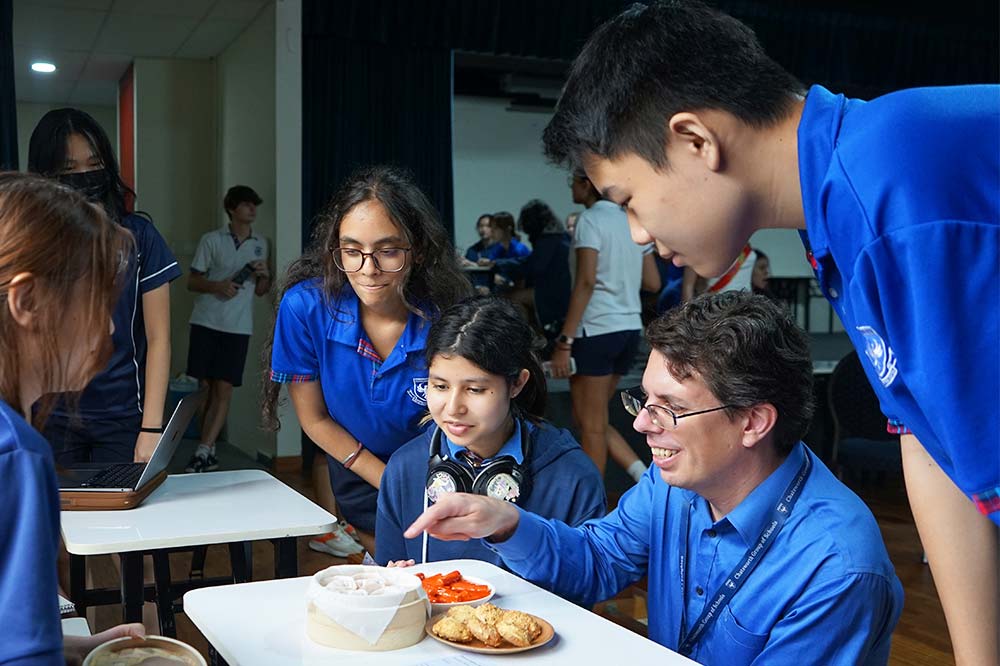
Choosing the right international secondary school in Singapore is a significant decision for expat families. It impacts not just the immediate educational experience but also shapes the children's academic and career paths, underlining the importance of making an informed decision that aligns with the student's aspirations and potential. As we delve into this guide, we'll explore what makes a school the right fit, emphasising the broader implications of this meaningful choice on a student’s future.
Understanding Singapore's International Secondary School Landscape
Singapore's education system is celebrated for its diversity and excellence, housing a broad spectrum of international secondary schools to meet the varied needs of the expatriate community. These schools provide access to various educational boards and curricula, such as the International Baccalaureate (IB), the International General Certificate of Secondary Education (IGCSE), and the American High School Diploma, each distinguished by its unique approach to learning and assessment.
Below is an overview of the key educational systems available:
IB: Renowned for its comprehensive curriculum, the IB fosters critical thinking, global awareness, and a holistic education approach, preparing students for the complexities of a globalised world.
IGCSE: Celebrated for its rigorous and balanced academic programme, the IGCSE offers a strong foundation across a broad spectrum of subjects, accommodating diverse interests and abilities.
American High School Diploma: This diploma emphasises broad education, preparing students for American college-level education with a wide array of subjects and extracurricular opportunities.
Australian Curriculum (HSC): The Australian HSC curriculum provides a balanced educational approach, focusing on developing a wide range of skills and knowledge, with an emphasis on critical thinking and problem-solving abilities.
French Baccalaureate: Offers a comprehensive and rigorous education, promoting deep analytical thinking, a broad understanding of various disciplines, and proficiency in the French language.
German Abitur (Deutsches Internationales Abitur): Known for its depth and intensity, the German Abitur prepares students for higher education by strongly emphasising analytical skills, independent study, and mastery of subjects.
Central Board of Secondary Education (CBSE): The CBSE curriculum adopts a holistic educational approach, emphasising intellectual and social development, and is recognised for balancing core academic subjects with extracurricular activities.
Factors to Consider When Choosing a Secondary School
Selecting the right international secondary school for your child requires thoughtful consideration of various critical aspects to ensure the best fit for their educational and personal development needs.
Curriculum & Subjects Offered
The curriculum is the backbone of a student’s education, making it crucial to select a school that aligns with your child’s learning style and future goals. A well-matched syllabus engages and motivates, enhancing the educational journey by catering to their strengths and interests. This is crucial for fostering a deep, enduring understanding of the subjects, laying a solid foundation for future academic and career achievements.
Accreditation
The importance of accreditation cannot be overstated — it serves as a benchmark for educational quality and the recognition of qualifications globally. Opting for a school with reputable accreditation means picking a path that adheres to high educational standards, enhancing your child’s prospects for higher education and career opportunities.
Location
The convenience and environment of a school's location are paramount factors in the selection process. A strategically situated school minimises commute times and, the availability of transport options facilitates ease of travel between the school and home. Safety, accessibility, and local amenities sweeten the experience by ensuring a supportive learning environment. Proximity to extracurricular and cultural activities further enriches the student’s education, making location a fundamental consideration in choosing a school that aligns with your family's lifestyle and values.
Facilities
Modern facilities are integral to improving the educational experience, providing the necessary resources for a comprehensive learning journey. Well-equipped classrooms, science laboratories, art studios, libraries, and sports complexes indicate a school's commitment to holistic education. These facilities support a wide range of academic disciplines and extracurricular activities, fostering an environment where students can explore their interests, develop new skills, and excel in their studies.
Cost
Families navigating the landscape of international secondary schools must address affordability and financial planning for education. The cost encompasses not just tuition fees but also additional expenses such as uniforms, extracurricular activities, and school trips, which can significantly impact your family's budget. Balancing the quest for quality education with financial considerations requires careful planning and exploration of available financial aid, international school scholarship programmes, and flexible payment plans offered by schools to make education more accessible and aligned with family financial resources.
Class Size
The impact of class size on individual attention and learning outcomes can be substantial. Smaller class sizes promote a more personalised learning experience, enabling teachers to focus on each student's needs and learning style. This environment fosters greater student engagement, enhanced understanding, and better academic and personal outcomes as students receive the support and attention needed to excel. Furthermore, smaller classes allow for stronger teacher-student relationships, contributing to a positive and nurturing educational atmosphere that supports overall student well-being and success.
Extracurricular Activities
Co-curricular and extracurricular activities play an indispensable role in the holistic development of students, extending learning beyond the confines of classroom instruction. These activities provide essential experiences that foster leadership, encourage teamwork, and promote personal growth. Through sports, arts, clubs, and interest groups, students explore their interests, develop new skills, and form lasting friendships. Extracurriculars also teach valuable life lessons in time management, commitment, and resilience, contributing significantly to developing well-rounded individuals prepared for the complexities of the real world.
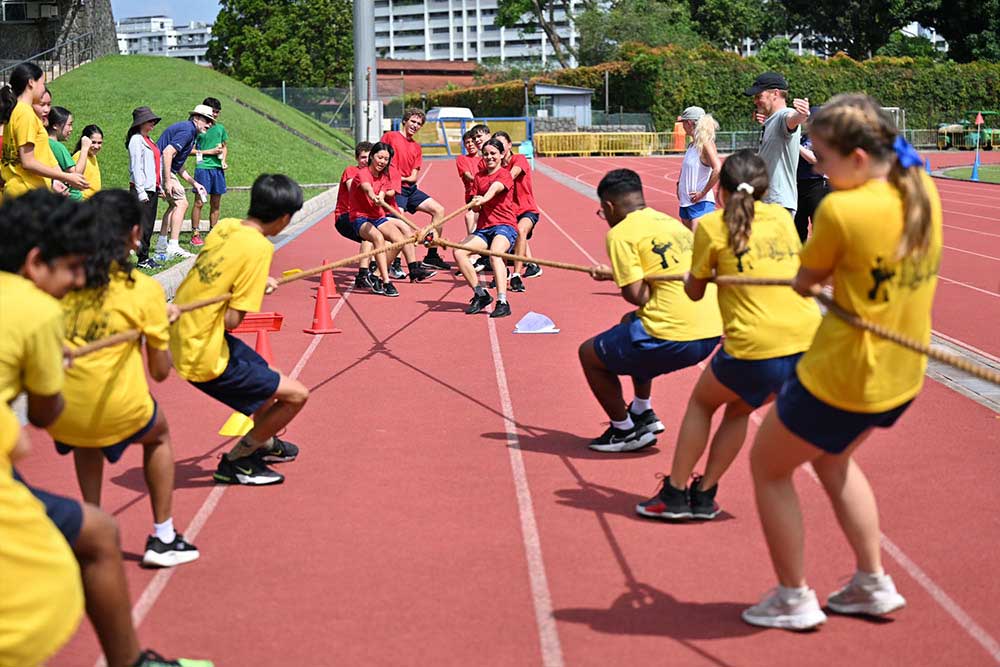
Student Support Services
The significance of student support services in fostering both academic and emotional well-being cannot be understated, particularly for expat students adapting to new educational and cultural environments. Comprehensive support services, including counselling, academic tutoring, and language assistance, are vital in helping students navigate challenges, build resilience, and achieve academic success. These services ensure that your child receives the personalised care and attention necessary to thrive, fostering a sense of belonging and community within the school.
Language Options
The availability of diverse language programmes in schools is paramount for families seeking to enhance their children's multilingual proficiency and global cultural understanding. By providing access to multiple language options, such as Mandarin, Spanish, and French, schools enable students to develop advanced communication skills and a deeper appreciation for global diversity, positioning them as competent global citizens in an increasingly multicultural world.
Health and Safety
Ensuring a safe and secure learning environment is fundamental for the well-being of students and the peace of mind of their families. Schools prioritise safety through comprehensive security measures, emergency preparedness, and fostering a culture of respect and inclusivity. A secure environment protects students physically and supports their emotional and mental health, enabling them to focus on learning and personal growth. Chatsworth was among the first schools in Singapore to train its staff in offering the Keeping Safe: Child Protection Curriculum (KS:CPC) to all students on campus, enabling them to understand their rights as children and how to protect themselves.
Admission Process and Requirements
Navigating the admission process into international secondary schools involves several key steps: understanding the necessary documentation (such as report cards, reference letters, and standardised test scores), familiarising yourself with the eligibility criteria (which may include age, previous academic performance, and language proficiency), and adhering to specific Singapore international school application timelines. Schools typically provide detailed admission guides to assist families through this process. Start by visiting the school’s website or contacting the admissions office to gather all relevant information, ensuring a smooth and informed application journey for your child.
Legal and Visa Requirements
Navigating the legal and visa requirements is a critical step for expat students planning to join Singapore's vibrant international educational landscape, especially those looking to enrol in Foreign System Schools (FSS) and Privately-Funded Schools.
To embark on full-time studies at these institutions, most international students will need to secure a Student’s Pass from the Singapore Immigration & Checkpoints Authority (ICA). This requirement is waived for holders of a valid Dependant’s Pass, Long-Term Visit Pass, or Immigration Exemption Order. A key consideration for eligibility is the school's EduTrust certification, a testament to its adherence to high educational and operational standards.
For the Student’s Pass application, be prepared with the following documents and information:
- Official Registration Acknowledgement Letter from your chosen school
- The biodata page of your travel document, and if necessary, your birth certificate
- Detailed personal information covering past residencies, educational achievements, work experience, and financial backing
- Relevant details of immediate family members (if applicable)
- Your contact information and residential address in Singapore
- A recent, passport-sized digital colour photo, compliant with the ICA’s photo guidelines
- Foreign-born applicants younger than 12 years must submit vaccination records to the Health Promotion Board (HPB).
Initiate the application process through the ICA's e-Service at least a month before your course commences. It's advantageous to apply from abroad as processing does not permit stay extensions within Singapore. Once approved, you can complete the final formalities for your Student’s Pass in person.
The application is accompanied by a non-refundable processing fee of S$30, which will be revised to S$45, effective1 April 2024. Processing times average one to two weeks, subject to visa requirements and potential delays for more complex cases.
Cultural Adaptation and Community Engagement
Singapore's multicultural environment offers expat students and families a unique opportunity to immerse themselves in a rich blend of traditions and customs. Schools are at the forefront of this cultural integration journey, providing a supportive backdrop for students to explore and embrace the diverse cultural landscape.
Key to this process is active participation in school-organised activities that celebrate various cultures. These events enable your child to gain a deeper understanding and appreciation of the world around them, enriching their social skills, global awareness, and empathy towards different cultural perspectives.
For parents, involvement in school and community activities plays a vital role in fostering a sense of belonging and connection. Many schools encourage parent participation in multicultural festivals, workshops, and committees, offering a platform to contribute to the school's inclusive environment while deepening your own cultural understanding.
What’s more, leveraging community resources, such as local cultural institutions and events, can further support children's adaptation to their new setting. Engaging with the wider community allows families to establish networks beyond the school, enriching your expatriate experience in Singapore.
Exploring Post-Secondary Education
As you plan your children's educational journey, consider the transition from secondary to post-secondary education. Schools that provide structured pathways to university programmes play a crucial role, as these options align with students' long-term academic and career aspirations, ensuring a seamless progression to higher education.
Pre-university programmes, such as the IB Diploma Programme (IBDP) offer rigorous academic preparation that universities globally recognise. They emphasise critical thinking, research skills, and in-depth study in students' chosen subjects, preparing them well for the challenges of university education. Schools that offer comprehensive career guidance and university placement services can also greatly assist in this process, helping students make informed decisions that align with their ambitions and capabilities.
By focusing on international schools that support these pathways, you can ensure your child is well-equipped for the next step in their educational journey, opening doors to prestigious universities and future career opportunities.
Making An Informed Decision
Choosing the right international secondary school in Singapore is a significant decision that requires careful thought and consideration. Schools like Chatsworth International School exemplify the value of an institution that aligns with students' educational and personal growth needs, offering a comprehensive IB programme within a nurturing and diverse community. As you weigh your options, consider the factors setting your child up for success and book a campus tour with us today to witness firsthand the vibrant, supportive, and enriching learning environment we provide to best prepare them for the challenges and opportunities ahead.


